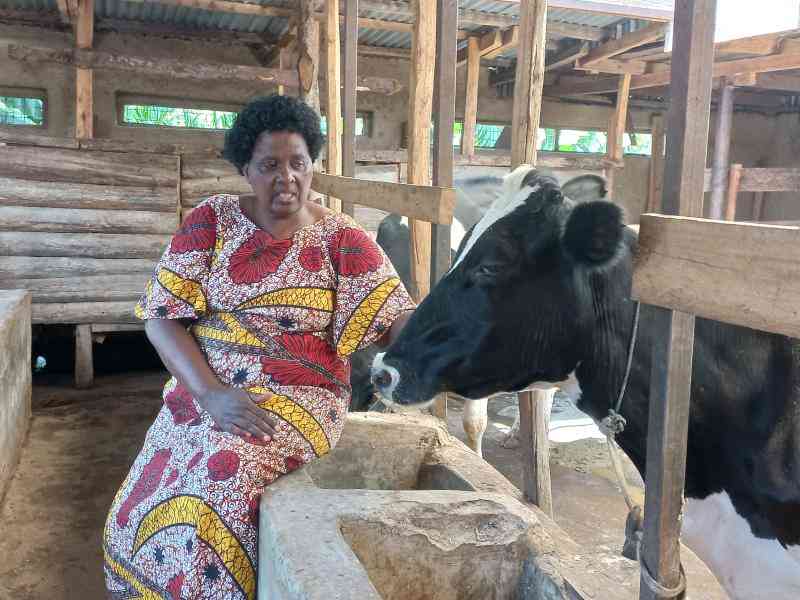×
The Standard e-Paper
Join Thousands Daily

Margaret Ahona from Emanda village in Vihiga Subcounty tending to her dairy cow. [Brian Kisanji, Standard]
Margaret Ahona is one of the leading dairy farmers from Emanda village in Vihiga Sub-county.